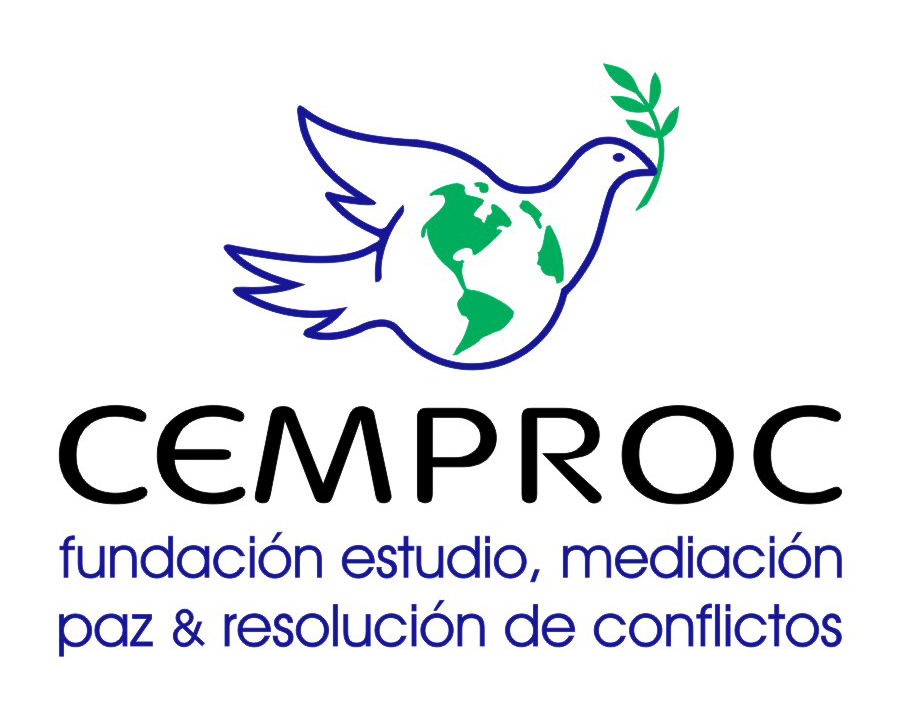Training
We train leaders committed to peace
Training
We train leaders committed to peace
GROWING IN PEACE
WE WORK TO LEAVE OUR CHILDREN A MORE FAIR AND PEACEFUL WORLD
"Growing in Peace" is a project that seeks to train peacemakers and promote peace as an effective way for children and their families to develop as happier, resilient, assertive, supportive and respectful beings with themselves and others.
Main peace strategies and program areas:
1. Peace Promoters training
2. Peaceful methods of conflict resolution
3. Assertive communication
4. Bullying prevention strategies
5. Violence prevention
A Child Peace Promoter is a boy or a girl with a deep desire to make a difference in his/her quality of life and that of others, who seeks to help solve problems peacefully and thus build better relationships. A Child Peace Promoter employs tools such as peaceful methods of conflict resolution, diffusion of peace, and violence prevention.
PROJECT STAGES:
In the firs stage CEMPROC intervenes in the school or educational center and trains authorities and teachers on the main guidelines of the project. Surveys are conducted on children to determine needs, levels of violence and bullying situations.
In the next stage, students 8 to 12 years old are invited to be part of the Peace Promoters group, their own will to do so is the first requirement. These students are then trained in peace strategies. After this process, they begin their activities mediating conflicts among their peers, developing outreach campaigns, and training on peace issues, violence prevention and bullying.
Finally, workshops are provided to parents with the aim of avoiding violence and build a culture of respect, love and solidarity among all household members.
The “Growing in Peace” program allows to reduce the levels of violence and increase values such as solidarity, empathy, tolerance and teamwork.
THE "GROWING IN PEACE" PROGRAM AT THE STATE OF ISRAEL SCHOOL
In December 2016 CEMPROC initiated the project at the State of Israel School in Quito. Surveys were conducted on children of 6th and 7th grades.
The first workshops were held on the 10th and 11th of January 2017 with authorities and teachers of the school. They were trained in the guidelines of the program, leadership issues, personal empowerment and goal setting.
During the week of January 23rd, those boys and girls who wanted to be part of the Peace Promoters group enrolled in the program.
Their first workshop was held on Tuesday, January 31st and we also had a meeting with their parents to explain the guidelines of the project and agree on the date for the first workshop with them.(See our photo gallery)
On Tuesday, February 21st, we had a great session with the Peace Promoters of the State of Israel School and each session we are joined by more boys and girls eager to join the team. The Peace Promoters worked on the definition of bullying, they talked about the very negative consequences of bullying and they came up with strategies to help the victims and reconcile them with their peers. Also, as a group activity, the children remembered the program’s slogan that they created in previous sessions and came up with a new one for their team!
During the workshop on Tuesday, March 7th, the Peace Promotes discussed what the "interest" and the "demand" are in a conflict. Using an iceberg as example, the children knew how to explain that the base of the conflict, the part we cannot see, is generally larger; just as the base of an iceberg. In addition, we were glad to see that the Promoters are often using concepts discussed during workshops to explain situations of conflict and the potencial solutions. Keep up the good work!
The Peace Promoters at the State of Israel School have shown a lot of interest in learning and sharing their messsages of peace and anti-bullying. We are extremely proud of their teamwork and we believe that in April, after their graduation, each one of them will be able to promote a culture of peace at school, at home, and their environment.
To see the Peace Promoters in action check our Facebook pages, we update them constantly: Crecer en Paz and CEMPROC.
Research
Research
CEMPROC considers research to be an important part of its mission, with which it can contribute to a greater understanding of conflict, its sources, its implications, and effective mechanisms for its resolution. In all of its research efforts, CEMPROC seeks to take advantage of its specialization in conflict resolution tools and training in the Latin American and Spanish- speaking context in order to improve general understanding in this field, and exploring less-studied areas, particularly in developing countries of Latin America.
Conflict Dynamics in Developing Areas
CEMPROC has designed a survey instrument which it is distributing in marginalized neighborhoods in Ecuador with the purpose of measuring a broad range of attitudes toward conflict and different resolution mechanisms, and to gather data on the primary sources of conflict in these areas as well as the availability of mediation and other conflict resolution support services. The data gathered through this instrument will serve the dual purpose of contributing to a greater understanding of the application of conflict resolution theory in developing countries and of generating baseline data that will help ensure that CEMPROC's programs are designed in such a way to be as effective as possible in meeting the needs of its target constituency. (Click here to see some of the preliminary results from this research project).
Peacebuilding Among Transnational Youth in Migrant-Receiving Border Regions of Ecuador by Jeffrey D. Pugh (December, 2016) This article explores the factors that contribute to the effectiveness of peacebuilding initiatives in border regions where refugees and citizens coexist and sometimes come into conflict. It does so by comparing two programmes seeking to build conflict resolution capacity among youth in Ecuador near the Colombian border. (Click here to read the abstract)
Adapting Community Mediation for Colombian Forced Migrants in Ecuador by Jeffrey Pugh, David Sulewski and Julie Moreno (September, 2016) This article addresses the challenges of using mediation in conflicts involving immigrants and refugees by examining the case of Colombian migrants in Ecuador. (Click here to read the abstract)
Bridges, Not Walls, Foster Peace and Security as Refugees Arrive by Jeff Pugh (June, 2016) The mass shooting in Orlando this week reignited the battle over immigration of Muslims, despite the fact that the perpetrator was born in the United States. As refugees flee war-torn countries seeking safety, some politicians in the West have warned these newcomers to stay out. The presumptive Republican presidential nominee said in response to the Orlando shooting that, if elected, he would ban immigrants from areas of the world in which terrorism toward the United States or its allies have occurred. Leaders like this believe that allowing immigrants to enter and coexist with citizens might lead to vulnerability if any has harmful intentions. Peace and security, however, are easier to achieve by building bridges than by erecting walls. (Click here to read the article)
What displaced Colombians living abroad think about the peace efforts by Jeff Pugh (October, 2016) The peace deal between the Colombian government and the Revolutionary Armed Forces of Colombia (FARC) guerrilla group was rejected by less than a 0.5 percent margin in a referendum on Oct. 2. This outcome shocked the world and defied the expectations of most external observers. The signed agreement to end the violence seemed all but complete, so its rejection by referendum makes the future of peace efforts uncertain. (Click here to read the article)
Interview at HCJB Radio (2015) Interview with CEMPROC’ Director in Ecuador, Omar Rodríguez, members of the Mennonite Church and refugees regarding conflict resolution and peace building between Ecuadorians and Colombian refugees.
Trial by Fire for Ecuador’s President Correa by Jeff D. Pugh (August, 2015) Multi-colored ponchos, lime green government banners, and gray and olive police armor have filled the streets of Quito and other cities in Ecuador this month. Ecuadorian president Rafael Correa and opposition protestors have been engaged in a war of words and displays of physical presence in public spaces since the major nonviolent challengers, the Confederation of Indigenous Nationalities of Ecuador (CONAIE), and its allies launched a nationwide strike and March on August 13. Correa is one of the cohort of presidents challenging U.S. hegemony in Latin America, and he has taken over the leading role in promoting regional integration and denouncing U.S. intervention after Hugo Chavez’s death. For this reason the protests, and Correa’s increasingly repressive response to them, will be carefully watched by those in other countries wishing to gauge whether the ‘Bolivarian moment’ has peaked. (Click here to read the article)
Refugees and the formation of a transnational community: International Symposium (June, 2015) Jeffrey Pugh of UMass Boston presented “Network protection: institutional links connecting Colombians and Ecuadorians” and Veronica Garcia of UPEC presented “Socio-economic and migratory situation of the population: a closer look to the border towns of Tulcán, Huaca, Montúfar and Bolívar” (Click here to watch the video in Spanish)
Host-Migrant Peacebuilding in Border Regions (December, 2014) Video of a talk by Jeff Pugh on peacebuilding and governance networks, and their impact on Colombian forced migrants in Ecuador. Presented as a Conflict Resolution Colloquium in the Department of Conflict Resolution, Human Security, and Global Governance at the University of Massachusetts, Boston. (Click here to watch the video)
Forum: Protection Networks and Forced Migrants in Ecuador (UDLA) July, 2014
With the participation of Dr. Jeffrey Pugh and moderated by Dra. Cheryl Martens, research coordinator at UDLA. Sponsors: Department of International Relations at UDLA, CEMPROC, University of Massachusetts Boston, Fulbright Commission in Ecuador. (Click here to watch the video in Spanish)
Forum: Protection Networks and Forced Migrants in Ecuador (FLACSO) June, 2014
With the participation of Dr. Jeffrey Pugh, Dr. Patricio Benalcázar, Noelia Montagud from Asylum Access Ecuador and Ruth Álvarez from ASOCOMIRCE; moderated by Dr. Cecile Mouly fromFLACSO-Ecuador. Sponsors: FLACSO Ecuador, CEMPROC, University of Massachusetts, Fulbright Commission in Ecuador. (Click here to watch the video in Spanish)
Presentation at UN Interagency Framework Team for Preventive Action: Peacebuilding and Human Security in Refugee Communities Refugees and forced migrants often flee violent countries of origin only to find themselves facing additional political, social, and economic exclusion in their new host communities. States, which may be faced with political pressure to focus resources on citizens and not foreigners, are not always reliable providers of security in practice, even for legally-recognized refugees. As a result, governance networks that include NGOs, informal institutions, and members of the UN system have taken on an important, but sometimes controversial, role in filling this gap and fostering peace and security. This presentation draws on the speaker’s research with Colombian refugees in Ecuador, as well as on his nine years of experience leading a small nonprofit organization dedicated to conflict resolution education in Ecuador. Through case studies of partnerships involving coordination among UN, NGO, and state actors, the presentation will identify key lessons learned, and will examine the promise and limitations of governance networks. It will also propose recommendations for practitioners in all three sectors seeking to combine and coordinate the peacebuilding potential of state, non-state, and UN actors. The presenter gratefully acknowledges the financial support of the Committee on Aid to Faculty Research (CAFR) grant which made this research possible. (Click here to access a PowerPoint presentation)
Networked governance in Ecuador’s border regions by Lana Balyk and Jeff Pugh (May, 2013) In order to improve security for both Colombian forced migrants and Ecuadorians in the communities where they live, an approach that takes advantage of governance networks can allow residents to negotiate access to resources and rights that they otherwise would not be able to enjoy. It can also improve relations between the two groups. (Click here to read the article)
Human Security and Peacebuilding: Colombian Forced Migrants in Ecuador Audio recording of a research presentation given by Dr. Jeff Pugh, Executive Director of CEMPROC, on October 27, 2011 at the Watson Institute for International Studies at Brown University in Providence, RI. (Click here to download the mp3 audio file).
Ecuadorian College Student Attitudes Toward Colombian Refugees This study, which was carried out during the Summer 2007 CEMPROC/UGA Study Abroad Program by Tessa Buffington, Andrew Gonzalez, Andres Ochoa, and Chris Poth, explores beliefs and attitudes among Ecuadorian college students at 6 Quito universities toward Colombians and Colombian refugees. The results are presented in summary form in a presentation that cross tabulates survery responses with demographic characteristics, including the general expected socioeconomic level of each of the 6 universities. The sample size for the survey is n=120. The surveys were distributed as randomly as possible at each universities, while the specific universities were selected to include a wide geographical and socioeconomic range. (Click here to see a PowerPoint presentation of the survey results and analysis)
Refugee Conflict Dynamics and International Relations CEMPROC uses a service research model to measure attitudes among Colombian refugees and immigrants and the Ecuadorian host community with respect to their perceptions of conflict, sources of tension between Colombian migrants and Ecuadorians, and effective conflict management mechanisms. Using a combination of focus group style open forum, informal interviews, and survey questionnaires, this project, which has received funding from the Johns Hopkins University Program on Latin American Studies and others, seeks to explore how community-level conflict dynamics are filtered and mediated through public messages, stereotypes, the media, and politicians at all levels to affect national-level policy toward Colombia. (Click here to see a PowerPoint presentation of some preliminary results)
Publications
CEMPROC Working Paper Series in Peace, Conflict and Development
This series publishes works in progress that deal with issues of international peace and conflict, incorporating themes of security, development, human rights, and institutions, especially in Latin America.
Governance Networks Fostering Peace and Human Security among Ecuadorians and Colombian Forced Migrants, by Lana Balyk and Jeffrey D. Pugh (2013) (Click here to read the article)
Whose Brother´s Keeper? International Trusteeship and the Creation of Peace, by Jeff Pugh (2005)
"International trusteeship of territories by multilateral institutions or foreign states received renewed attention in the wake of its application in Kosovo and East Timor during the 1990s. Subsequently, interventions in Afghanistan and Iraq have contributed to the intensity of critical discussion over the ability of post-Westphalian sovereignty approaches to delineate the interactions and limitations of competing norms as they apply to questions of human rights, justice, nationalism, and security. This paper seeks to conceptualize clearly the idea of international trusteeship and to establish normative and practical criteria for the application of the trusteeship model to weak, fragile, or post-conflict societies. In particular, I propose that consent of the local population, international legitimacy, and local institutions capacity for effective governance form the key dimensions of the legitimacy and feasibility of a potential international trusteeship. Building on disparate perspectives found in the literatures on quasi-states, state building, liberal institutionalism, and critiques of international intervention, the paper tests the utility of these criteria through limited case studies of actual and potential international trusteeships, including East Timor, Kosovo, and the Palestinian territories. Finally, I propose a typology of trustee-like international interventions in order to clarify the conceptual muddle that persists in the trusteeship literature."
El Salvador's Negotiated Solution to Civil War, by Jeff Pugh (2006)
After years of violent conflict, 75,000 casualties, and three years of negotiations, the government of El Salvador and the FMLN rebel alliance signed a historic comprehensive peace accord which brought an end to the war and instituted wide-reaching reforms. This paper employs a broad structural analysis to understand the conditions which led to the 1992 Chapultepec Peace Accords. Within this explanation of broad power dynamics, however, a multi-stage framework separates the negotiation process into different phases characterized by distinct strategies, goals, and motivations. The combination of structural and integrative conceptual tools offers a nuanced explanation of the negotiations and the resulting peace agreement. The negotiations were shaped profoundly by alterations in the power relationship between the parties, resulting from domestic events, changing norms, and the evolution of the international political context. The unsuccessful November 1989 FMLN offensive on San Salvador and the subsequent murder of six Jesuit priests by the Salvadoran military (with the resulting international backlash) were the immediate triggers that forced both parties to reassess their positions and come to the negotiating table, a decision that was strongly reinforced by external structural realignments including the end of the Cold War, increased pressure for human rights reform and decreased military assistance from the United States government, and the availability of United Nations mediation to push the process along. In response to calls for the application of El Salvador´s lessons to contemporary conflicts, the paper considers how these historical parallels can be usefully (but carefully) applied today.
Other Publications in CEMPROC Working Paper Series in Peace, Conflict and Development en English and Spanish:
Democratic Peace Theory: A Review and Evaluation (2005), by Jeff Pugh
La frontera ColomboEcuatoriana: determinante en las relaciones entre los dos países, by Andres Quintero L. (2007)
Colombia, Ecuador and Two Plans: An Overview of the Colombian Conflict and Colombian-Ecuadorian Relations, by Karoline Popp (2007)
El Conflicto con Colombia: Influencia en el Ambiente y la Salud, by Andres Quintero L. (2008)
Changing Gears in Colombia: U.S. Policy under President George W. Bush (2003), by Jeff Pugh CEMPROC Executive Director has written an analytical paper examining the violent conflict in Colombia, and particularly focusing on the change in U.S. foreign policy toward this country during the administration of President George W. Bush. As perhaps the most violent conflict in the Western Hemisphere, the Colombian armed struggle has no easy answers; this analytical work, however, sheds light both on the factors influencing the current situation and their historical roots, and offers suggestions for an eventual peace proposal. To read the full paper, click below:
Changing Gears in Colombia: U.S. Policy under President George W. Bush (2003)
Call for submissions: In order to submit an article for consideration to be published in the CEMPROC Working Paper Series, send it by e-mail, along with a 200-word abstract and your affiliation information, to info@cemproc.org with 'CEMPROC WPS submission' in the subject line.
sUMMER iNSTITUTE
sUMMER iNSTITUTE
Summer Institute on Conflict Transformation Across Borders
BORDER ZONES can be sites of conflict among states and transnational actors over currency and trade, migration and refugees, environmental threats, and contested sovereignty, illustrated by the European refugee crisis, the U.S.-Mexico border, disputes over contested borders in East Asia, and many other cases around the world. Trained, dedicated individuals capable of developing innovative responses with which to transform conflicts are needed to build institutional and social bases for coexistence and a lasting peace.
Program Summary
The third annual Summer Institute on Conflict Transformation Across Borders will take place from June 26-July 14, 2017 in Quito, Ecuador at FLACSO. Led by an international faculty of peace building practitioners and scholars, this summer institute in Ecuador is designed to equip early-career professionals, graduate and advanced undergraduate students, and other future peace builders with practical tools, knowledge, and hands-on experience to understand the complexities of conflicts within and across border regions, and the types of interventions that can be used to transform these conflicts. Ecuador is the perfect venue for studying these issues, as it is the largest recipient of refugees in Latin America, has advocated for the concept of universal citizenship, and has negotiated the negative impact of transnational environmental damage with neighboring states and with extractive industries.
Participants will reside in a university residence near the FLACSO campus in Quito, and will make field visits to the Amazon cloud forest in Baeza, and to the Northern Border region in Carchi province. The language of instruction will be English, although some Spanish-language talks will likely be included with translation provided.
Conflict Transformation Across Borders is offered through the Department of Conflict Resolution, Human Security, and Global Governance in UMass Boston’s McCormack Graduate School of Policy and Global Studies. The program will be jointly run with UMass Boston partner institutions, la Facultad Latinoamericana de Ciencias Sociales (FLACSO), and the Center for Mediation, Peace, and Resolution of Conflict (CEMPROC).
This 3-minute video is a great way to get a quick feel for the program: https://youtu.be/pubS4Jf7D80 You can also check out the official website for the Summer Institute: https://www.umb.edu/academics/caps/international/conflict_transformation
The Summer Institute on Conflict Transformation in Ecuador has extended its application deadline to Monday, April 17 - submit your application ASAP to secure one of the remaining spots!
For more information, please contact: Erika White (Erika.White@umb.edu) or Jeff Pugh, PhD (jeffrey.pugh@umb.edu)
Other programs
Other programs
Call for Proposals 2022-23
CEMPROC program alumni Peacebuilding Small Grants
Are you a former participant in one CEMPROC’s international training/education programs (Conflict Transformation across Borders with FLACSO and UMass Boston, the Regional Institute on Nonviolent Action in the Americas with ICNC, FLACSO, and PUCE)? Do you have a project to build peace or promote just social change that you would like to carry out, or one that you are carrying out and would like to scale up or expand? Have an idea to pilot an initiative, or carry out a training, convene changemakers to plan and build networks, or produce a pedagogical material that can be used in the future?
With the support of the Rotary Club, CEMPROC is inviting brief proposals for seed/pilot projects, and rapid-implementation projects that take advantage of urgent/time-sensitive opportunities to build peace or promote just social change, preferably in your home country/community. Small grants of $500 - $1,500 are available on a competitive basis. All projects must be focused and short-term for the usage of funds (funds and the project activities that they pay for must be completed before April 30 2023), but we prefer projects that can catalyze or initiate ongoing processes or that help strengthen and scale up a series of activities already in progress that would otherwise not be funded.
At least one person proposing the project must be a former participant in one of CEMPROC’s international training/education programs in Ecuador. There can be non-alumni collaborators in addition to this person, and priority will be given to projects implemented by people in/from the community that will be benefited by the program. Although CEMPROC values research, this grant is not intended to fund pure research. The proposals for this grant should focus on practical interventions, educational/training programs, materials production, or other direct peacebuilding/social change initiatives.
In order to apply, please answer the following questions in clear, straightforward language (should total no more than 2 pages). An interview will then be set up to discuss the project proposal in more detail for short-listed proposals.
1. Problem and solution: What is the problem that you are trying to address with your project? How do you hope to make it better (remember to be realistic about what you will be able to accomplish with the scope of your project and budget)?
2. How many people will be benefited directly and indirectly by the project, and who are they (please be as specific as possible in your estimate of the number of beneficiaries/participants)? Please be specific about the place and people/groups that will be the focus of your project, and why they are important.
3. Please describe the specific activities that you plan to carry out in order to address the problem and achieve the change you hope to see. Please provide a timeline detailing how long each activity/portion of your project will take, as well as the overall proposed time period between when you would receive funds and when you would submit your final report.
4. What resources (people, skills, time, money) will you need to carry out your project? What do you need to use the money for, and how much will you need to carry out your proposed activity? You should include a budget that details in each line the different expenses (specific amounts in $USD) you anticipate and how much you propose to spend on them.
5. How does this short-term project connect to other longer-term changes—i.e. will it strengthen your ability to do additional peacebuilding work in the future, or will it help to scale up a small/voluntary project that you had already begun?
6. What is the best way to contact you if we would like to set up an appointment for an interview? (Zoom, Skype, WhatsApp, phone, etc.)?
Please send your proposal to cemproc@gmail.com. Applications should be submitted no later than October 25, 2022. Applications received after this date may be considered on a rolling basis as needed, but they will not receive first priority for funding consideration.
Profiles of past grantees
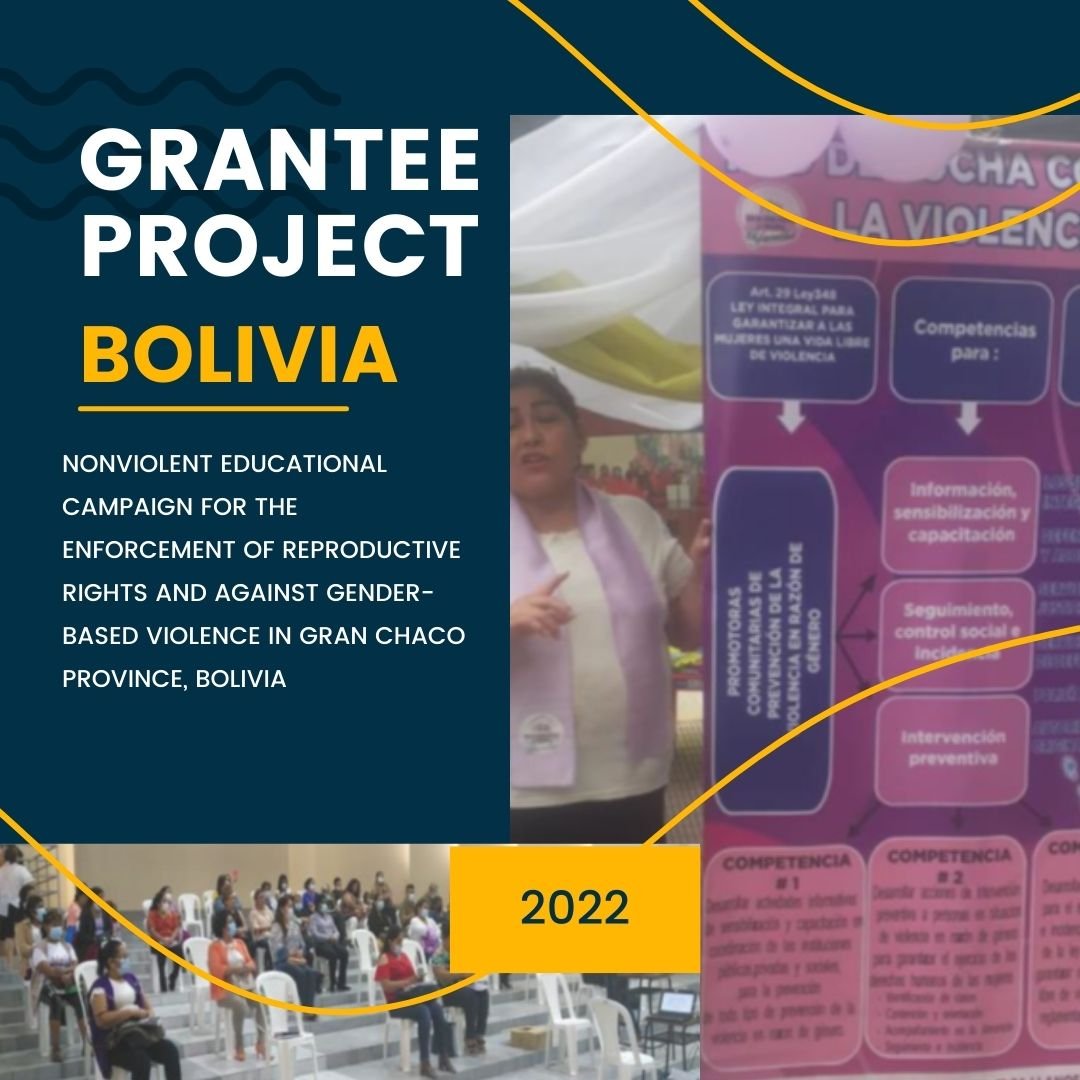

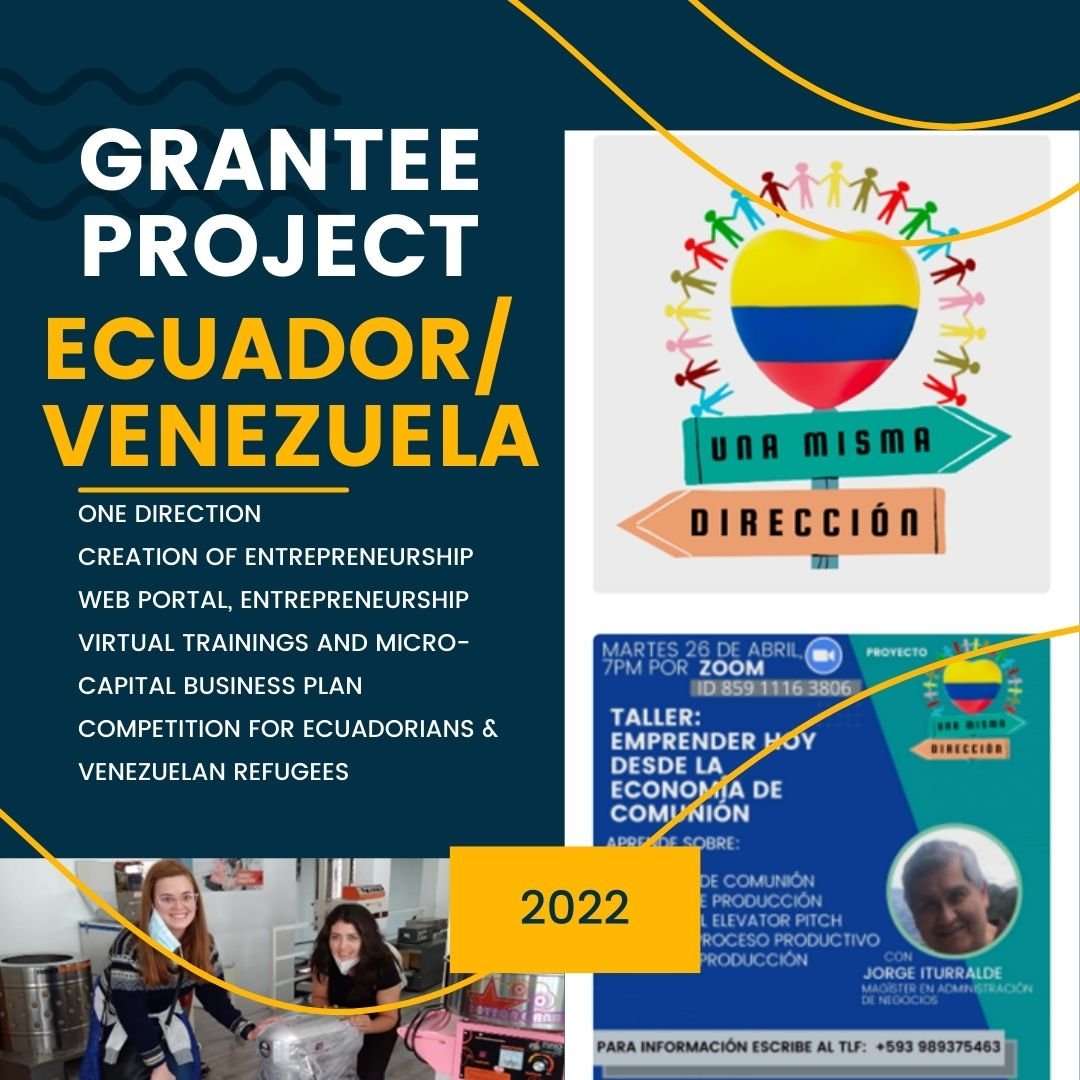
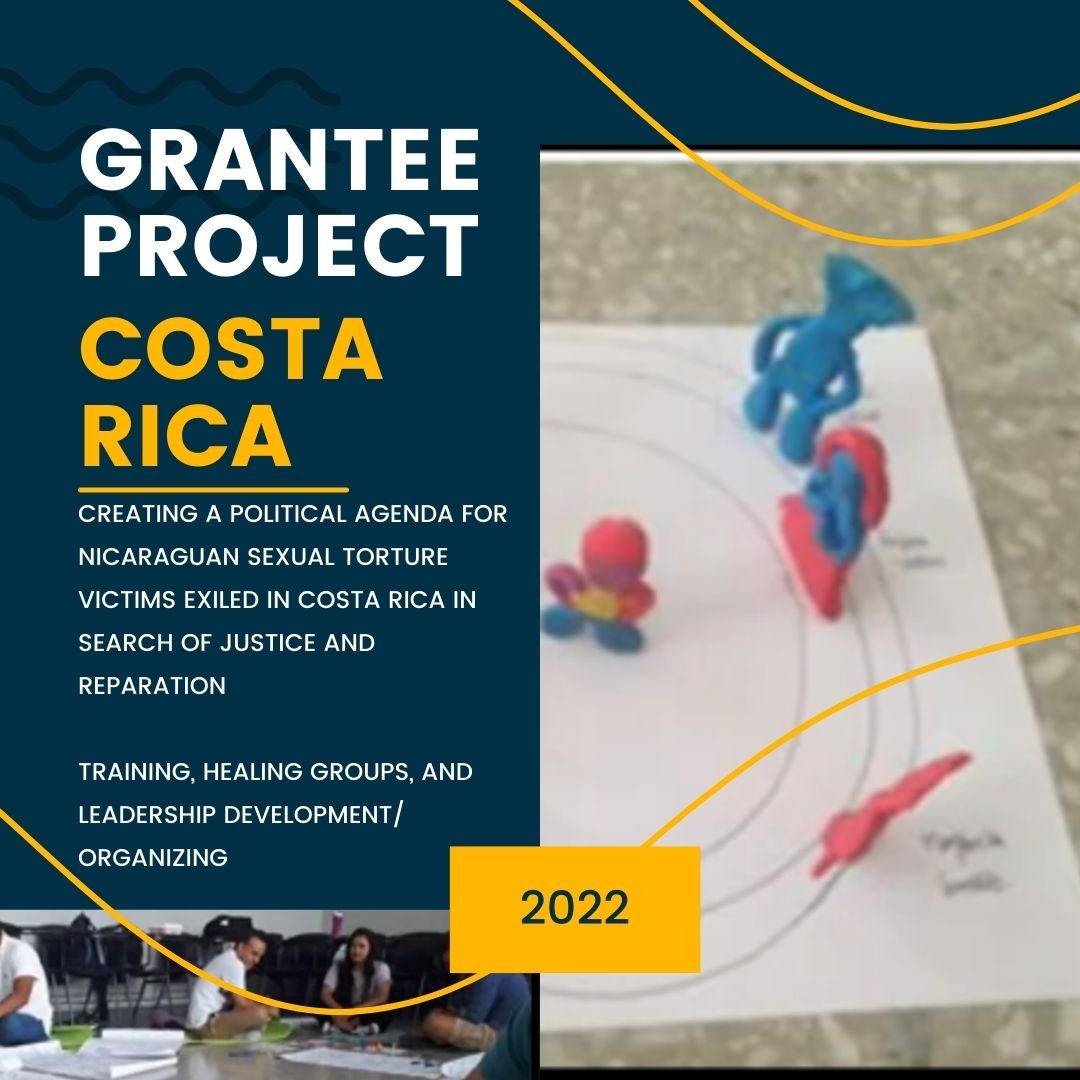
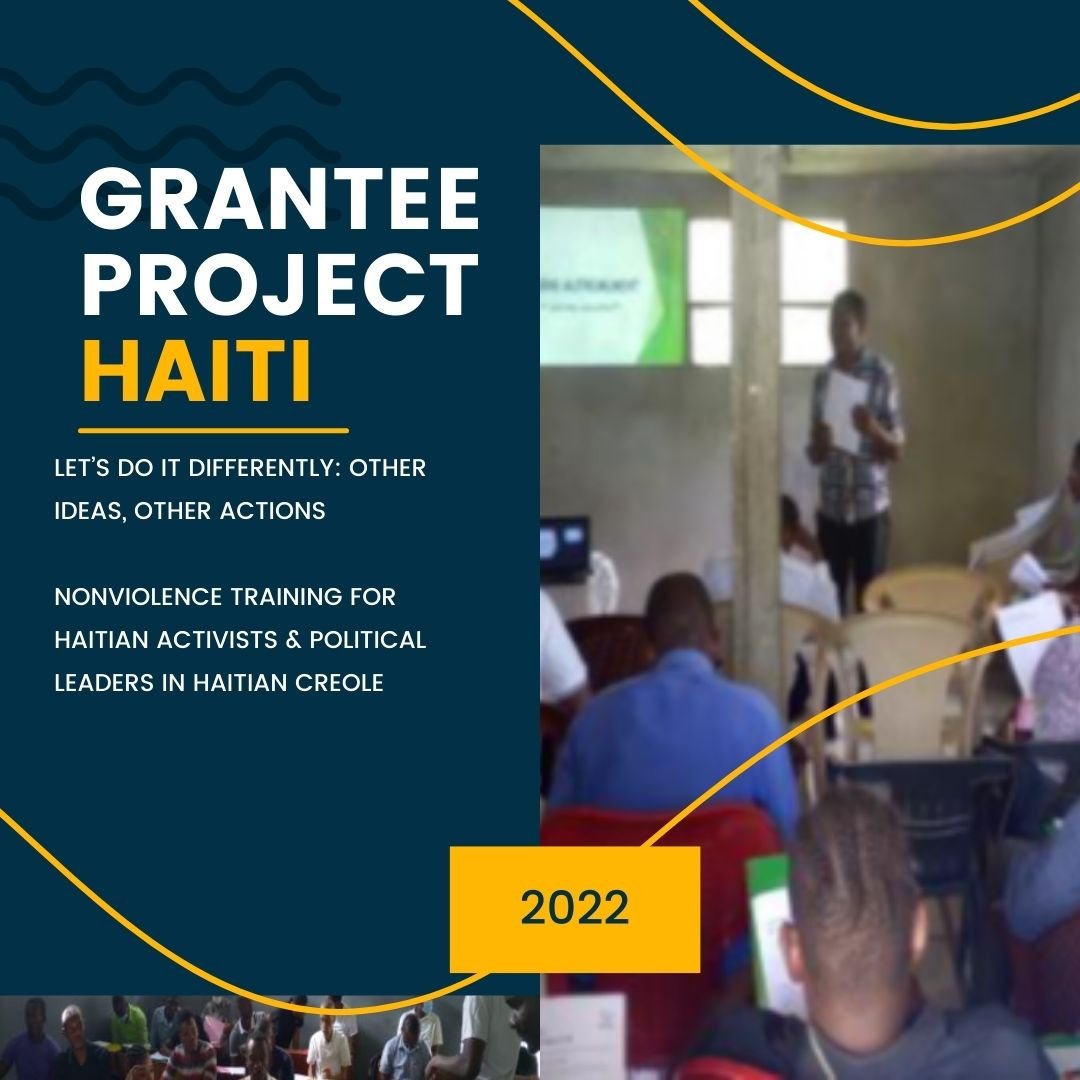
Rotary appreciation video highlighting 2021 grantees
